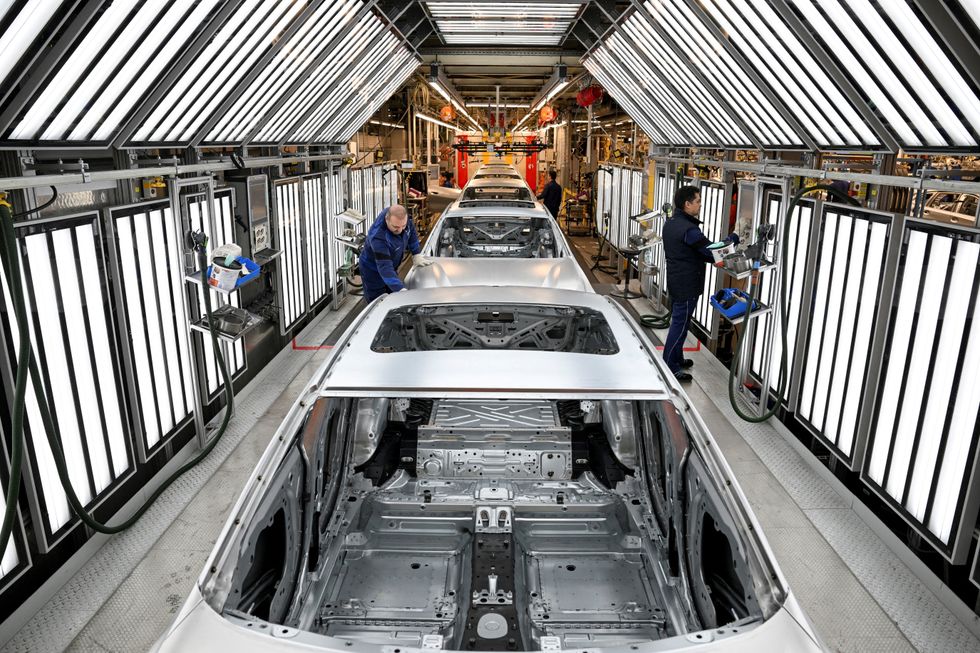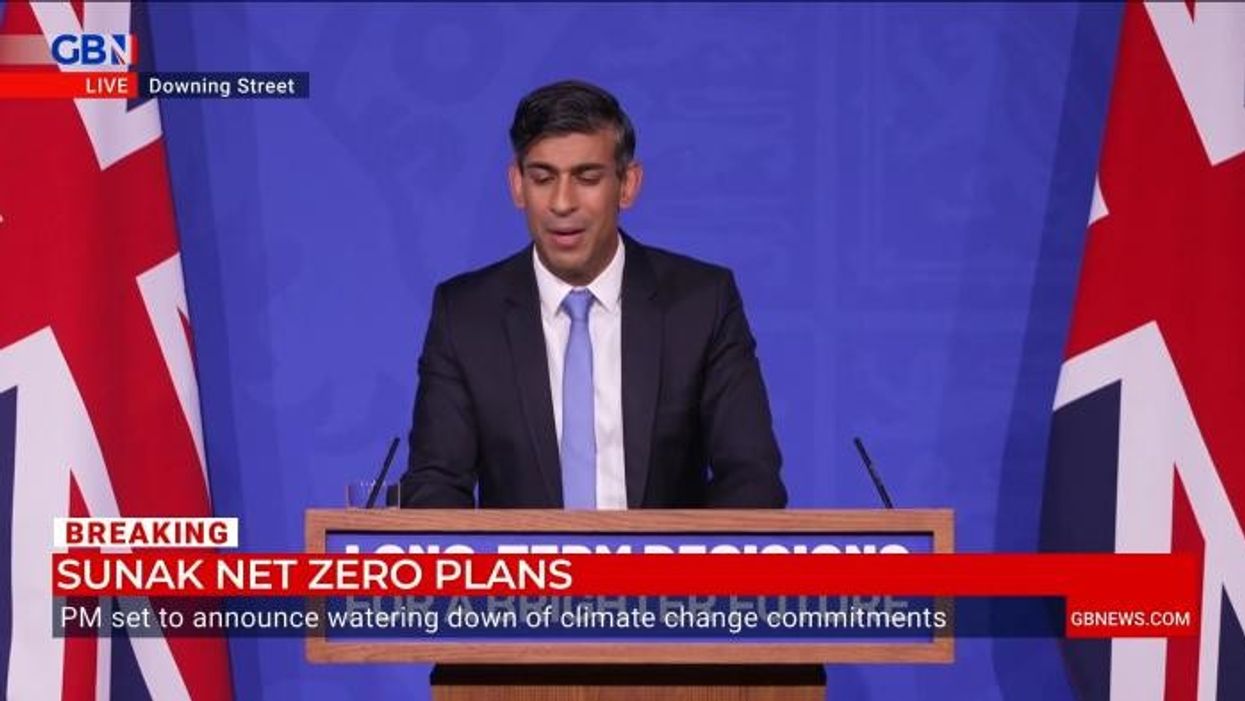Major car brand says demand for petrol vehicles has peaked as drivers make switch to EVs
'The current sales plateau of combustion cars will continue and then fall off slightly'
Don't Miss
Most Read
Trending on GB News
A BMW executive has claimed that demand for petrol cars has peaked as car manufacturers begin to move towards electric vehicles.
Walter Mertl, chief financial officer at the global brand, said electric cars would lead future growth, rather than internal combustion engine-powered vehicles.
BMW already has lofty targets for its electric vehicle division, aiming for half a million EV sales this year, making up around a fifth of total deliveries.
Sales of electric cars for BMW jumped by 75 per cent last year as growth was seen around the world.

A BMW chief has hinted that demand for petrol cars has peaked
GETTY
The brand is aiming to sell three million electric vehicles by 2030 with its popular i Series range already boosting sales.
Speaking on a call with journalists, Walter Mertl said: “The tipping point for combustion engines was last year.
“Future volume growth will primarily come from battery electric vehicles.
“The current sales plateau of combustion cars will continue and then fall off slightly.”
He added that by the end of the decade, BMW’s electric cars would have higher returns than internal combustion engine vehicles.
The Munich-based company achieved a 15 per cent electric sales share last year with plans to raise this figure to 33 per cent by 2026.
This will follow its “Neue Klasse” line that will only be made up of electric cars as the legendary marque pledges to support the development of cleaner technologies.
BMW has noted that the new class of electric vehicles in 2026 will help the brand reach parity between ICE and EVs.
It has highlighted how battery technologies will allow the brand to introduce more efficient and cheaper batteries for later models.
Last week, BMW announced that its Munich factory would end the production of internal combustion engine vehicles in 2027.
The 102-year-old site received a €650million (£559million) investment to expand the site that will only produce electric cars in just three years.
The factory, which produces around 1,000 cars every day, will begin to produce electric vehicles alongside factories in Hungary, China and Mexico in the coming years.
In September last year, Prime Minister Rishi Sunak delayed the deadline to ban the sale of new petrol and diesel cars and vans from 2030 to 2035.
He said this was being done to support drivers who were still struggling to switch with expensive upfront costs and an incomplete charging infrastructure.
LATEST DEVELOPMENTS:

The BMW plant in Munich will only produce EVs from 2027
REUTERS
It also brought the UK in line with European Union countries who pledged to ban the sale of new polluting vehicles by the middle of next decade.









